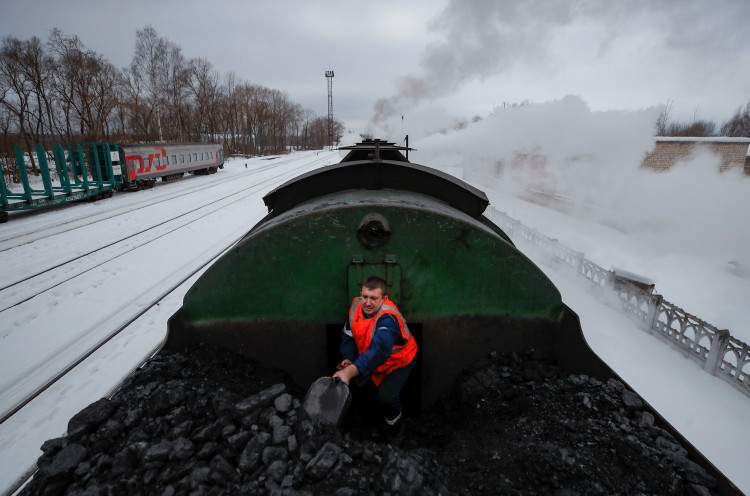With such heavy snowfall each year, Siberia is often called a white winter wonderland by its residents and tourists. However, this year, the snow that has fallen over several towns in Russia's coal basin has transformed the cities into what looks like gloomy wastelands. According to local reports, several cities within the coal-mining regions of Kemerovo in southwest Siberia are now covered in black toxic snow, likely caused by heavy pollution from coal dust in the atmosphere.
Several residents of the area uploaded videos and photos on social media, sparking a renewed concern over the country's environmental regulations. Some residents could only describe the black snow falling over their cities as being "post-apocalyptic." Three main cities in the area were reportedly the most affected; namely the cities of Kiselyovsk, Leninsk-Kuznetsky, and Prokopyevsk.
All of the cities, along with dozens of smaller towns, are located in the Kuznetsk Basin. The basin encompasses an area of around 27,000 square miles and is one of the largest coal mining areas in the world. The Kuznetsk Basin produces more than half of the country's total coal production. While Russia still heavily depends on its local coal, most of what it produces is exported to other countries.
According to environmental activists, the continued negligence of the government to impose better pollution standards has caused quite a lot of negative health effects; especially for those who are within close proximity to open-pit mines, coal stockpiles, and power plants. In the Kuzbass region, the life expectancy of residents is four years lower than the country's national average. Residents are also much more prone to respiratory diseases due to the frequent inhalation of coal dust.
Several Russian groups are now launching investigations into the matter, which will try to see if there are any environmental standards that are being breached by the different mines. Other groups are calling for the government to implement more robust environmental standards to solve the problem. However, this may be a difficult endeavor given the scale of the country's coal industry. Russia is currently in the middle of a mining boom, with over 130 coal deposits and more than 150,000 miners employed by the industry. Local officials would be hard pressed to place any pressure on local operators, given how much the industry has contributed to their respective communities.
According to the director of the Prokopyevskaya coal plant, the recent fall of black snow may be attributed to the apparent failure in their plant's shielding facility. The technical failure allegedly allowed more than the usual amount of coal powder to be released into the atmosphere. The director also explained that despite their best efforts, some emissions simply cannot be prevented.






